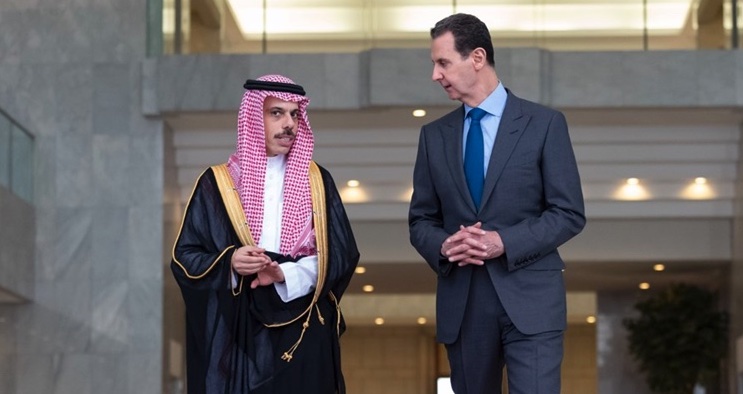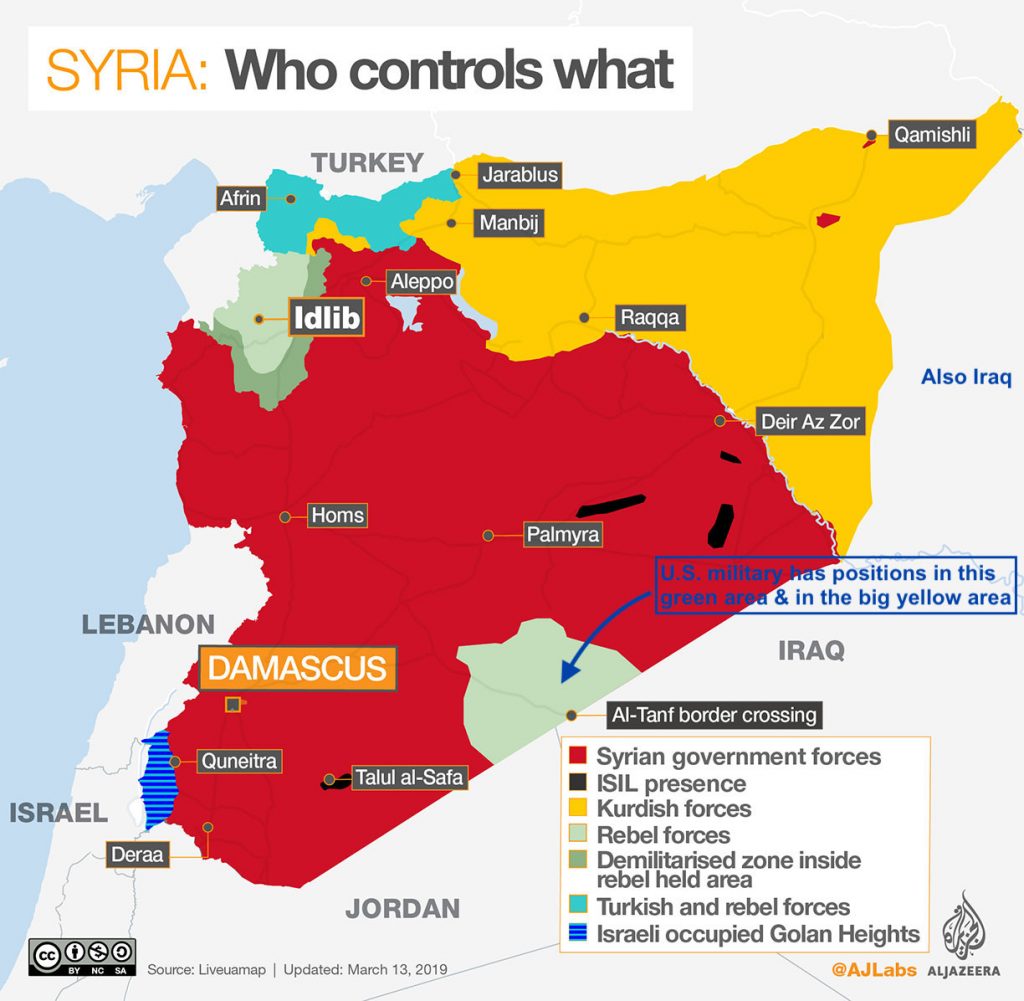by Helena Cobban
We’re pleased to cross-post an excerpt of this essay by Helena Cobban, originally published on Globalities. Globalities is a project of Just World Educational and its President, Ms. Cobban. To support this project, please give via this link. Learn more about Globalities here.
Suddenly, within the past few weeks, there has been a flurry of diplomatic activity that provides real hope that the civil war that’s devastated Syria for 12 years may be headed toward a negotiated peace and a chance for rebuilding. These moves have involved a number of key West Asian governments though there’s a potent global underpinning to them, too.
The past week has seen reciprocal visits by Syria’s foreign Minister to Saudi Arabia, and by the Saudi foreign minister to Damascus, where he met Pres. Bashar al-Asad. (As shown above.) Last month, too, Pres. Asad made a state visit to the United Arab Emirates where he was greeted with a 21-gun salute and held talks with UAE president Sheikh Muhammad bin Zayed. Given that Saudi Arabia and the UAE were for many years—along with Qatar, Türkiye, and the United States—the main financiers and strident advocates of the regime-change push in Syria, these visits signal that the war may finally be winding down.
Lovers of peace and justice from around the world should welcome this trend, and should also unreservedly support calls for all three of the foreign governments that still maintain hostile military forces within Syria to withdraw them immediately. These three are:
- Israel, which has occupied Golan since 1967;
- Türkiye, which has occupied parts of northwest Syria since 2011-12; and
- the United States, which has occupied parts of northeast Syria since 2014.


